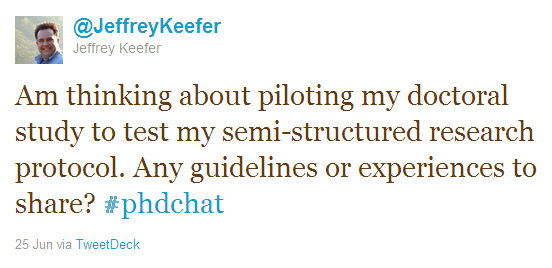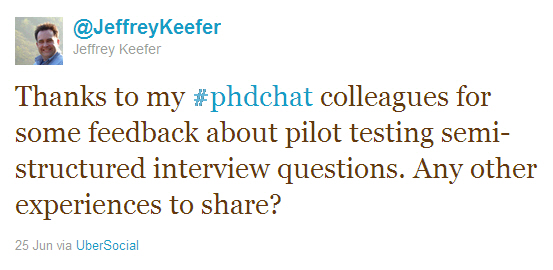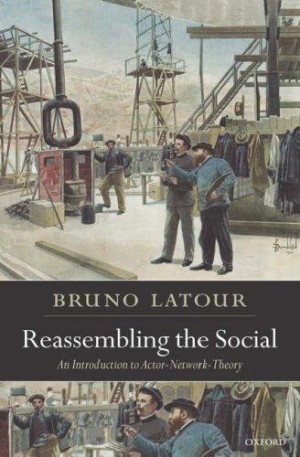As I am preparing to begin my search for participants for my doctoral thesis research, I received a suggestion last week to consider a pilot. Not sure why I had not thought about this before, but that is what having active supervisors and a supportive community of doctoral colleagues is for–help point out things when we miss them ourselves. Seemed like a good idea, though I wanted to get some feedback as to the processes.
Let me be clear, it was suggested (and I agreed) to pilot my semi-structured interview questions, not my research purpose and research questions (I have research evidence from the past 2 years and some literature that suggests this is a real issue that we do not know much about). If I pilot my questions, it can help me determine if they are the right questions (they will give me answers to my research questions and link to my problem and purpose). Nothing like having the opportunity to ask the interview questions and then discuss / debrief them with some people. I think I wrote interview questions that will get me what I want to know, though piloting the interview questions may just be the best way to find out.
Yes, I do follow the suggestions and recommendations of my supervisors, but how about the larger community of doctoral learners (some of whom may even ultimately participate in my study!!) who may have some suggestions for piloting these questions? With this in mind I asked my online doctoral community, #phdchat:

I then received a number of responses, and followed up with one more direct request for thoughts and suggestions and help and support:

The result is there is general consensus that piloting my semi-structured interview questions is useful, though that is not the only thing I learned in this process. I learned that there is power in community, as my two initial posts, along with my individual responses to what others suggested, resulted in 52 responses to me from a number of my doctoral colleagues. They shared their stories, what worked, what did not, what they learned, who to read for more information, and so on. Overall, I am amazed at how generous this network of fellow doctoral colleagues, most of whom I have never met face-to-face though with whom I have established various levels of relationship with, is when there is a need and sharing with one another is just the support that is needed. Can this indeed be a component of a community of practice?
Yes, my supervisors are wonderful, though my fellow colleagues cannot be underestimated!
 Today begins the second of the Hot Seat discussions in preparation for the Networked Learning 2012 Conference. This time, Terry Anderson and Jon Dron are planning to speak about Nets, Sets, and Groups — a model in one of their articles that they will build on and expand upon through a week of asynchronous discussion (after a recorded synchronous session today).
Today begins the second of the Hot Seat discussions in preparation for the Networked Learning 2012 Conference. This time, Terry Anderson and Jon Dron are planning to speak about Nets, Sets, and Groups — a model in one of their articles that they will build on and expand upon through a week of asynchronous discussion (after a recorded synchronous session today).



